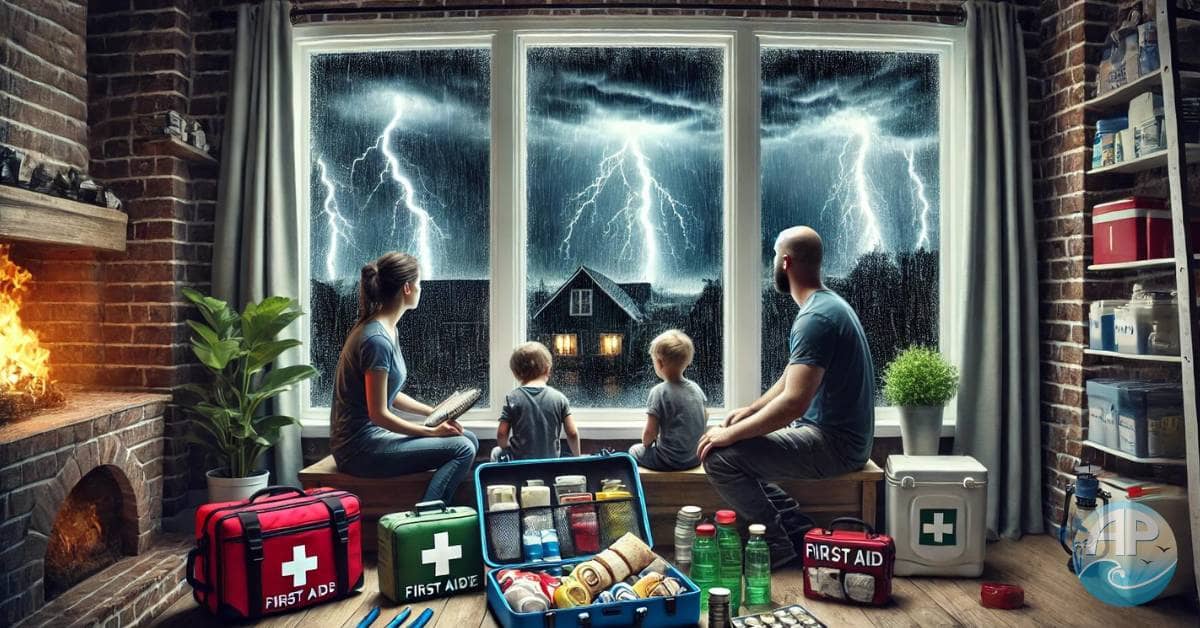How Emergency Preparedness Can Help You Survive in a World of Uncertainty
Table of Contents
- Why Preparedness Matters
- Natural Disasters: What It Means
- Self-Reliance in a Crisis
- Common Preparedness Myths
- Getting Started with Preparedness
- Building a Preparedness Community
- Take Charge of Your Future
Introduction: Why Emergency Preparedness Matters
In today’s unpredictable world, being prepared is essential. The Ultimate Guide to Emergency Preparedness will take you step by step through the strategies you need to protect yourself and your loved ones. With the rise in natural disasters, such as hurricanes, floods, and wildfires, it’s clear that readiness is no longer optional but a critical skill.
“Preparedness isn’t about being paranoid—it’s about being practical.”
When the unexpected happens, will you be ready? Emergency preparedness isn’t just about stocking up on canned food; it’s about having the right mindset and tools to thrive, no matter what comes your way. In the following sections, we’ll break down how you can easily get started and why being prepared is empowering.
The Rise in Natural Disasters: What It Means for You
According to experts, the frequency of natural disasters is on the rise. That’s why The Ultimate Guide to Emergency Preparedness is designed to help you understand the risks and take the necessary steps to safeguard your home, family, and community
- Hurricanes & Cyclones: They are stronger and last longer than ever before.
- Floods: These events are reaching areas that have never been affected before.
- Wildfires: They are spreading faster, with greater intensity, devastating larger areas.
The question isn’t if a disaster will happen—it’s when. Being prepared means you won’t be scrambling when disaster strikes. Instead, you’ll have the confidence and resources to protect yourself and your family.
Self-Reliance: The Key to Survival in a Crisis
“Self-reliance is your strongest tool in any crisis.”
Relying on public services or external help is great—but during a large-scale crisis, those services can be overwhelmed or unavailable. Self-reliance is key. It’s about having the skills and resources to survive on your own when needed.
Here are a few things you can focus on to boost your self-reliance:
- Water: Learn how to purify water or store it for long-term emergencies.
- Food: Stock up on non-perishable foods and learn how to grow your own food.
- First Aid: Equip yourself with basic first aid knowledge and keep a kit handy.
- Energy: Solar chargers, portable generators, and backup batteries are crucial when the power goes out.
Self-reliance isn’t just a practical skill—it’s a mindset. It empowers you to be prepared for the unexpected and adapt to whatever life throws at you.
Common Myths About Emergency Preparedness
A lot of people think emergency preparedness is overkill or only for extreme situations. Here are some common myths—and the truths behind them:
- Myth 1: “You need a bunker and tons of supplies.”
Truth: While being prepared does require some supplies, it’s more about smart planning and having essentials like food, water, and first-aid kits. You don’t need a bunker to be ready. - Myth 2: “Preparedness is expensive.”
Truth: You don’t need to spend a fortune. Start small, gathering essential items gradually. DIY solutions, such as water storage or food preservation, can be budget-friendly. - Myth 3: “I live in a safe area, I don’t need to prepare.”
Truth: No place is immune to emergencies. Natural disasters, power outages, and economic instability can hit anyone, anywhere. Being prepared is about securing your future, no matter your location.
How to Get Started with Emergency Preparedness
The Ultimate Guide to Emergency Preparedness simplifies the process, helping you break down preparedness into manageable steps. It’s not about panic—it’s about being smart. Start small by gathering essentials like food, water, and first-aid kits. From there, you can build a plan that works for your unique situation.
Starting with emergency preparedness doesn’t have to be overwhelming. Here’s how you can break it down into manageable steps:
- Assess Your Needs
Start by evaluating what emergencies are most likely to affect your area. Do you live in a flood zone? Are wildfires common? Tailor your preparations based on these risks. - Gather Essential Supplies
Start small. Focus on the basics like:- Water (store at least one gallon per person, per day)
- Non-perishable food (enough for at least three days)
- First-aid supplies
- Flashlights and batteries
- Create an Emergency Plan
Discuss with your family or household what to do in different emergency scenarios. Plan your evacuation routes, identify a meeting place, and make sure everyone knows what to do if communication fails. - Stay Informed
Use apps and alert systems to stay updated on weather patterns, disasters, or warnings in your area.
Building a Preparedness Community: Strength in Numbers
“Preparedness isn’t just about going it alone—it’s about building strong, supportive communities.”
During a crisis, having a preparedness community can make all the difference. Here’s why it’s important:
- Shared Resources: In an emergency, communities can pool together resources like food, water, and shelter.
- Skills Exchange: Different people bring different skills to the table. Someone may know first aid, while another has mechanical knowledge.
- Emotional Support: Being part of a community helps reduce the psychological stress that comes with crises.
You can start by reaching out to local groups or neighbors. Together, you’ll be better equipped to handle emergencies as they arise.
Conclusion: Take Charge of Your Future
Emergency preparedness isn’t about fear—it’s about taking control. Being prepared gives you peace of mind, knowing that you have the tools, skills, and mindset to face whatever life throws at you. Start small. Take one step at a time, and gradually build up your supplies, knowledge, and community.
Remember: “Preparedness is the ultimate form of self-reliance.” Don’t wait for a disaster to strike before taking action. Be ready today.
Awakening starts with questioning everything!
As you continue on your journey towards awakening and seeking more of the truth, it’s important to surround yourself with resources and communities that share your vision. For deeper insights into living free, questioning the status quo, and embracing a path of independence, visit The Out Thinkers. Here, you’ll find thought-provoking content that challenges conventional thinking and offers guidance for those seeking clarity in a complex world.



